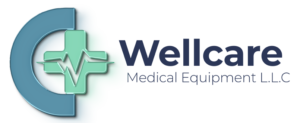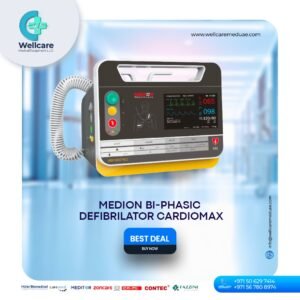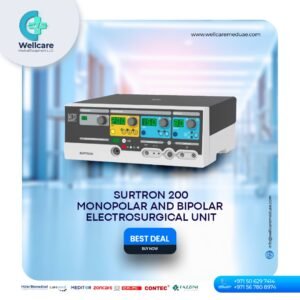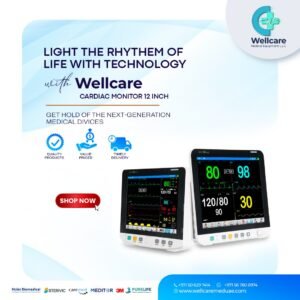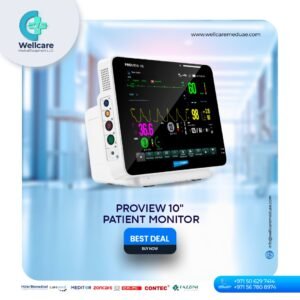Medical equipment supplier in Djibouti
Medical equipment is crucial to the healthcare landscape in Djibouti, playing an indispensable role in enhancing the quality and efficiency of medical services. In a country where healthcare infrastructure is continually evolving, the presence of modern medical equipment allows for more accurate diagnostics and effective treatments. This is particularly vital in combating both communicable and non-communicable diseases, which require precise and timely interventions to manage and treat. Equipment such as imaging machines, laboratory analyzers, and patient monitoring systems ensures that healthcare professionals can diagnose and monitor conditions with greater accuracy, leading to improved patient outcomes and more efficient use of healthcare resources. Moreover, the relevance of medical equipment extends to public health initiatives and the overall sustainability of healthcare services in Djibouti. Advanced medical technologies enable the implementation of comprehensive health programs, including vaccination drives, maternal and child health services, and emergency response systems. In rural and underserved areas, portable and user-friendly medical devices bridge the gap in healthcare access, bringing essential services to remote communities. The availability of such equipment not only enhances the capacity of local healthcare facilities but also reduces the need for patients to seek treatment abroad, thereby strengthening the domestic healthcare system and fostering greater self-reliance in medical care.
Enhancing Diagnostic Capabilities
Accurate Diagnoses: Medical equipment such as X-ray machines, ultrasound scanners, and laboratory analyzers enable healthcare professionals to accurately diagnose diseases and conditions. Accurate diagnoses are essential for effective treatment planning and patient care.
Early Detection: Advanced diagnostic tools facilitate the early detection of illnesses, allowing for timely interventions and better management of chronic diseases, infectious diseases, and other health conditions.
Improving Treatment and Patient Care
Advanced Treatment Options: Equipment like ventilators, dialysis machines, and surgical instruments provide advanced treatment options, enabling healthcare facilities to manage critical and complex medical cases effectively.
Patient Monitoring: Devices such as ECG machines, vital signs monitors, and infusion pumps allow continuous monitoring of patients, ensuring timely responses to any changes in their health status and improving patient outcomes.
Enhancing Healthcare Delivery
Operational Efficiency: Modern medical equipment improves the efficiency of healthcare delivery by streamlining processes, reducing manual workload, and enabling faster and more accurate results.
Emergency Response: In emergency situations, equipment such as defibrillators, portable ultrasound devices, and emergency transport systems are crucial for providing immediate and effective care, potentially saving lives.
Supporting Public Health Initiatives
Disease Control and Prevention: Equipment used for screening, vaccination, and laboratory testing supports public health initiatives aimed at controlling and preventing the spread of infectious diseases.
Maternal and Child Health: Medical equipment like fetal monitors, incubators, and neonatal resuscitation devices are vital for improving maternal and child health outcomes, reducing infant mortality rates, and ensuring safe childbirth.
Addressing Rural Healthcare Challenges
Healthcare Access: Deploying portable and user-friendly medical equipment to rural and remote areas enhances healthcare access for underserved populations, bridging the gap between urban and rural healthcare services.
Telemedicine: Telemedicine equipment, including remote diagnostic tools and communication systems, allows healthcare providers to offer consultations and medical services to patients in distant locations, improving healthcare accessibility.
Economic Impact
Cost Savings: Investing in durable and reliable medical equipment can lead to long-term cost savings by reducing the need for patient transfers to specialized facilities, minimizing downtime due to equipment failure, and lowering overall healthcare costs.
Capacity Building: Equipping healthcare facilities with modern medical equipment supports capacity building by enabling healthcare professionals to provide a wider range of services locally, reducing the dependence on external resources.
Training and Education
Professional Development: Access to advanced medical equipment enhances the training and education of healthcare professionals, enabling them to develop their skills and stay updated with the latest medical technologies and practices.
Research and Innovation: Modern equipment facilitates medical research and innovation, allowing healthcare providers to participate in clinical trials, conduct research, and contribute to the advancement of medical knowledge and practices.
In conclusion, medical equipment is of paramount importance in Djibouti’s healthcare system. It enhances diagnostic and treatment capabilities, improves healthcare delivery, supports public health initiatives, addresses rural healthcare challenges, and contributes to the overall development and sustainability of the healthcare sector.
